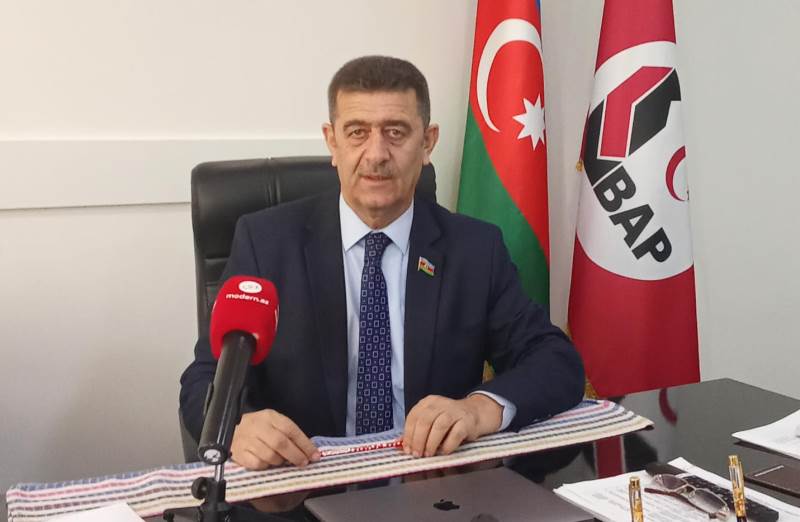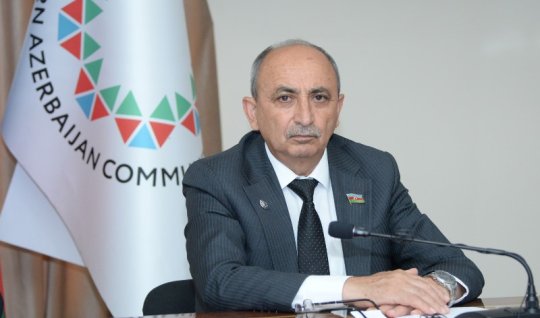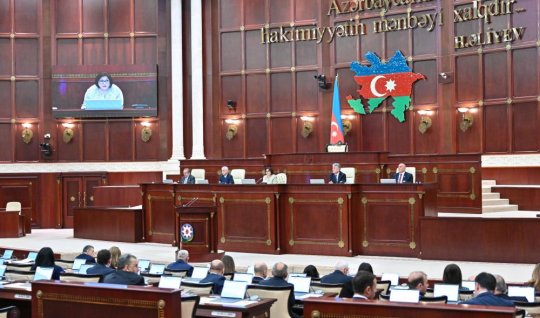Corruption operations will also REACH the Executive authorities of Baku districts

Operations conducted by the State Security Service (SSS) in the fight against corruption and official crimes continue. This time, the target was Islam Rzayev, who was dismissed from the post of head of the Balakan District Executive Power. With the arrest of Islam Rzayev, the number of executive heads who have ended up behind bars has risen to 7.
Operations related to corruption offenses and official crimes have so far mainly covered regions far from the capital. It is interesting that Baku's districts have always remained outside of similar measures.
It should be noted that there are 12 districts in Baku: Binəqədi, Xətai, Sabunçu, Nizami, Nərimanov, Nəsimi, Qaradağ, Səbail, Xəzər, Yasamal, Pirallahı, Suraxanı.
So why do the Executive Powers of the aforementioned districts of Baku remain outside of operations related to corruption offenses and official crimes? Does this stem from the good performance of the Executive Powers of those districts, or will their turn also come?
Member of the Milli Majlis Elshad Musayev stated in his declaration to Modern.az that the fight against bribery and corruption must be accelerated:
“I said in one of my previous interviews that our people miss the "black masks". Therefore, I believe that the fight against bribery and corruption must be accelerated. Because corruption, bribery, and monopoly eat away at the country from within. That is why the harsh face of the law must be shown to officials engaged in illegal activities.
I believe that the Balakan events are the next stage of operations carried out against corruption. This process must be continued. If we do not prevent corruption, illegality, and chaos in the country, we cannot achieve progress in economic and other areas. The executive heads of several districts consider themselves above the law and do not report to anyone. You look at a person, they have no significant wealth when they come to office, but during their tenure, they acquire so much property. The district itself is poor, but you see that the executive head's wealth is overflowing. There are local executive representatives; you see a thousand kinds of problems in the localities, but the number of their villas increases day by day. I believe this process must be continued.”
According to the deputy, there are several reasons why the conducted operations do not serve as a lesson for executive heads:
“The main reason for this is related to the system. The management system in the country must change, and there must be accountability. Local government bodies must be formed through democratic elections, and they must also report. At the same time, the bodies that control them do not work well themselves. For example, the courts. Executive heads work for years after their appointment – 10, 20 years in one place. The control over them is also not good. I repeat, the system itself must be designed so that everyone can control each other. Otherwise, some executive heads in the localities, and there are still such people, engage in a hundred kinds of trickery without fear or hesitation from anyone. They probably lean on someone. This is not how it should be.”

The deputy emphasized that operations related to corruption should also be carried out in the Executive Powers in Baku:
“I believe that these operations should also be carried out in Baku city itself. These operations have started in the districts, but they will probably reach Baku as well. The situation in several places in Baku city is clearly deplorable.
Incidentally, individuals who have embezzled a large amount of state property and assets must return those funds to the budget.
There are those who squander budget funds and harm the country's economy. Strict measures must be taken against them so that we can develop our economy and increase our labor productivity. We have allocated 41% of the budget to social issues. Now, this amount needs to be increased. There are many reasons why we cannot do this. One of those reasons is the people who engage in such destructive, corrosive activities in the localities. In fact, they halt the country's development.”
-
23:05, Bu günScandal at the White House
-
22:55, Bu günArmenia became a strategic partner with a European country
-
21:36, Bu günTurkey's strongest parties - Poll results ANNOUNCED
-
21:15, Bu günPutin's visit to Turkey is expected
-
20:15, Bu günMarxists wanted to seize power in Russia
-
18:32, Bu günRussia is a threat to 8 countries
-
18:16, Bu günPSG will pay Mbappe 61 million euros
-
18:07, Bu günRubinyan replied to Khamenei's advisor: “Trump's way is not the Zangezur corridor!”
-
17:56, Bu günMaduro may flee to Belarus: our door is open! - Lukashenka
-
14:32, Bu günYerevan denied Moscow: Russia is not in the Zangazur corridor discussion!
-
12:51, Bu günUkraine declared Filip Kirkorov wanted
-
11:55, Bu günRussia must hand over Abbas Abbasov! - DEPUTIES
-
00:52, Bu günA European country is considering NATO membership
-
00:40, Bu günProgress was achieved on numerous issues - ZELENSKİ
-
00:10, Bu günThe West is trying to break up the Caspian Five - LAVROV
-
15 December 2025, 23:23A factory exploded in Iran - 9 people died
-
15 December 2025, 22:50Unique operation from Ukraine - Russia's submarine was destroyed
-
15 December 2025, 22:16An unknown drone approached Turkey - Fighters shot it down in the air - URGENT
-
15 December 2025, 19:51Trump's threat yielded no results - fighting continues
-
15 December 2025, 19:39Ukraine struck Astrakhan this time
-
15 December 2025, 19:28Terrorism prevented in Los Angeles
-
15 December 2025, 17:33Issued to date AMNESTIES
-
15 December 2025, 16:47Erdoğan's son's call for support for his father
-
15 December 2025, 16:38Trump reopens US embassy in Belarus
-
15 December 2025, 14:36Is a strong earthquake expected in Azerbaijan? - Official STATEMENT
-
15 December 2025, 14:13Mercenary Azerbaijanis joining the Russian army - What punishments await them...
-
15 December 2025, 13:50State advisor who worked with four presidents WHO IS IT... - PHOTO
-
15 December 2025, 12:56The Church has turned into a political party - this is unacceptable - Pashinyan
-
15 December 2025, 12:54What did Lukashenka gift to Trump's family?
-
15 December 2025, 12:09Armenia has requested help from Europe






















































